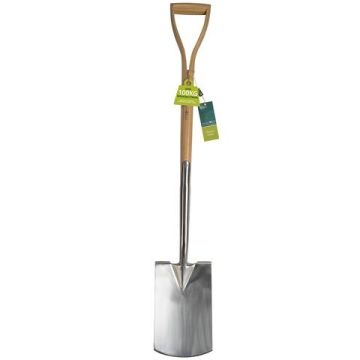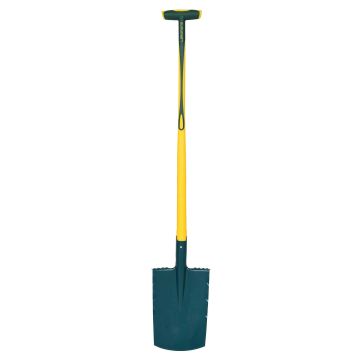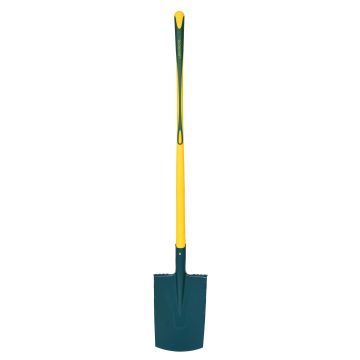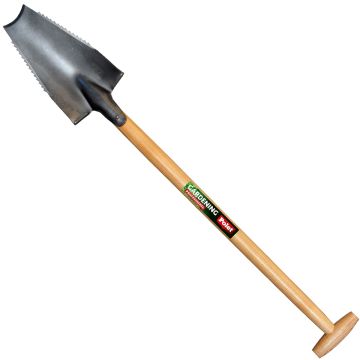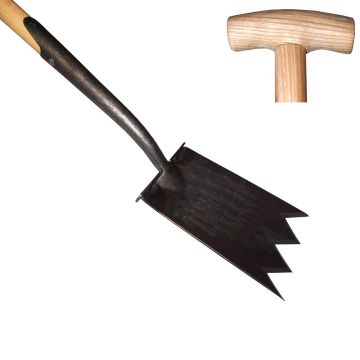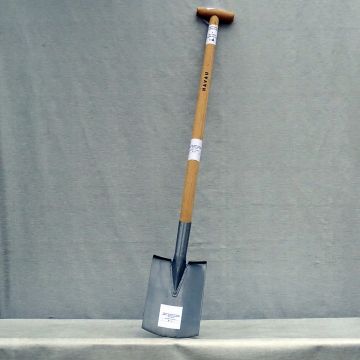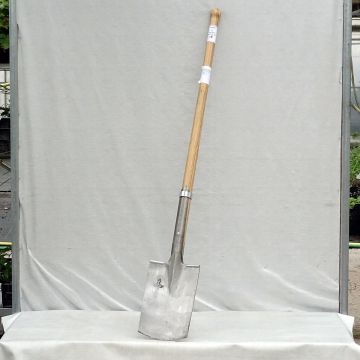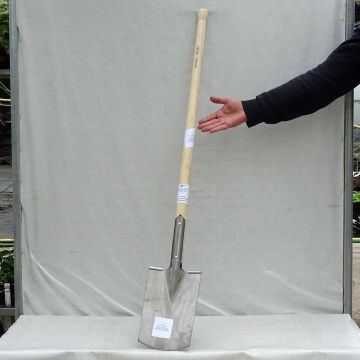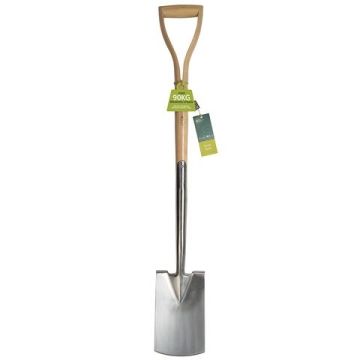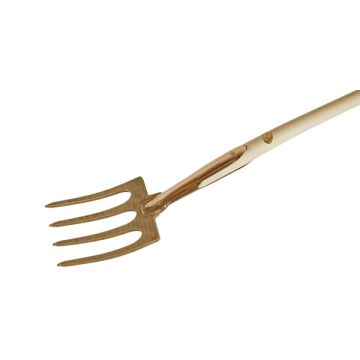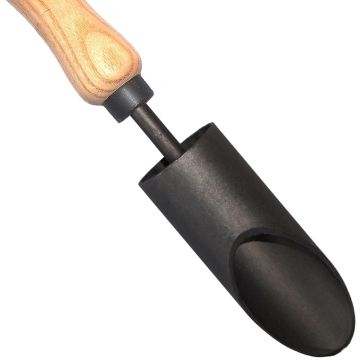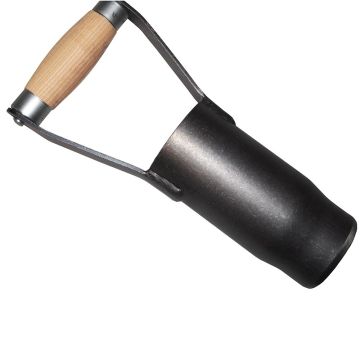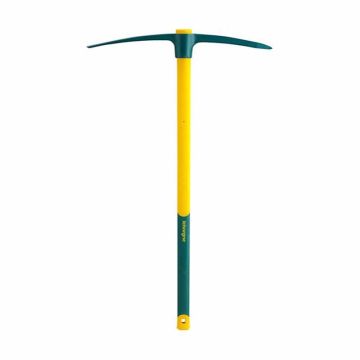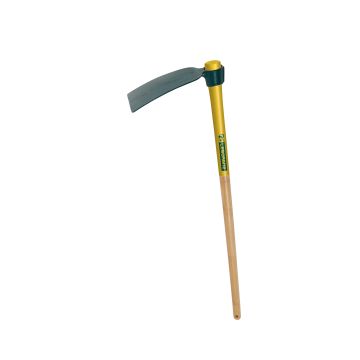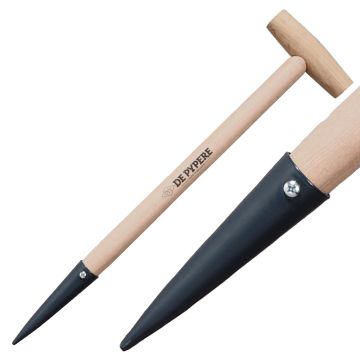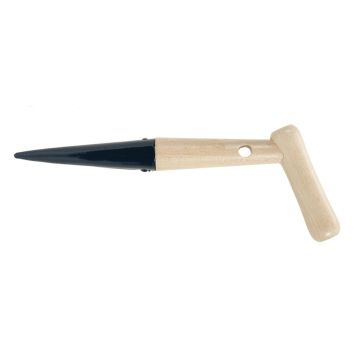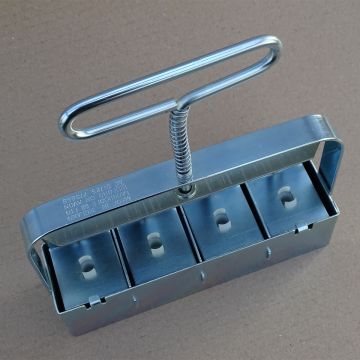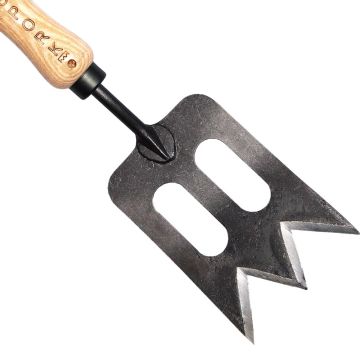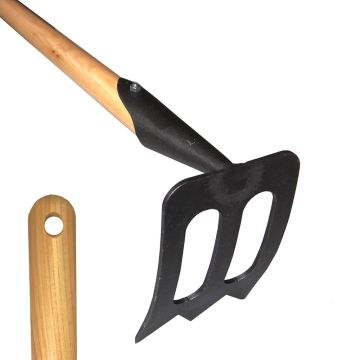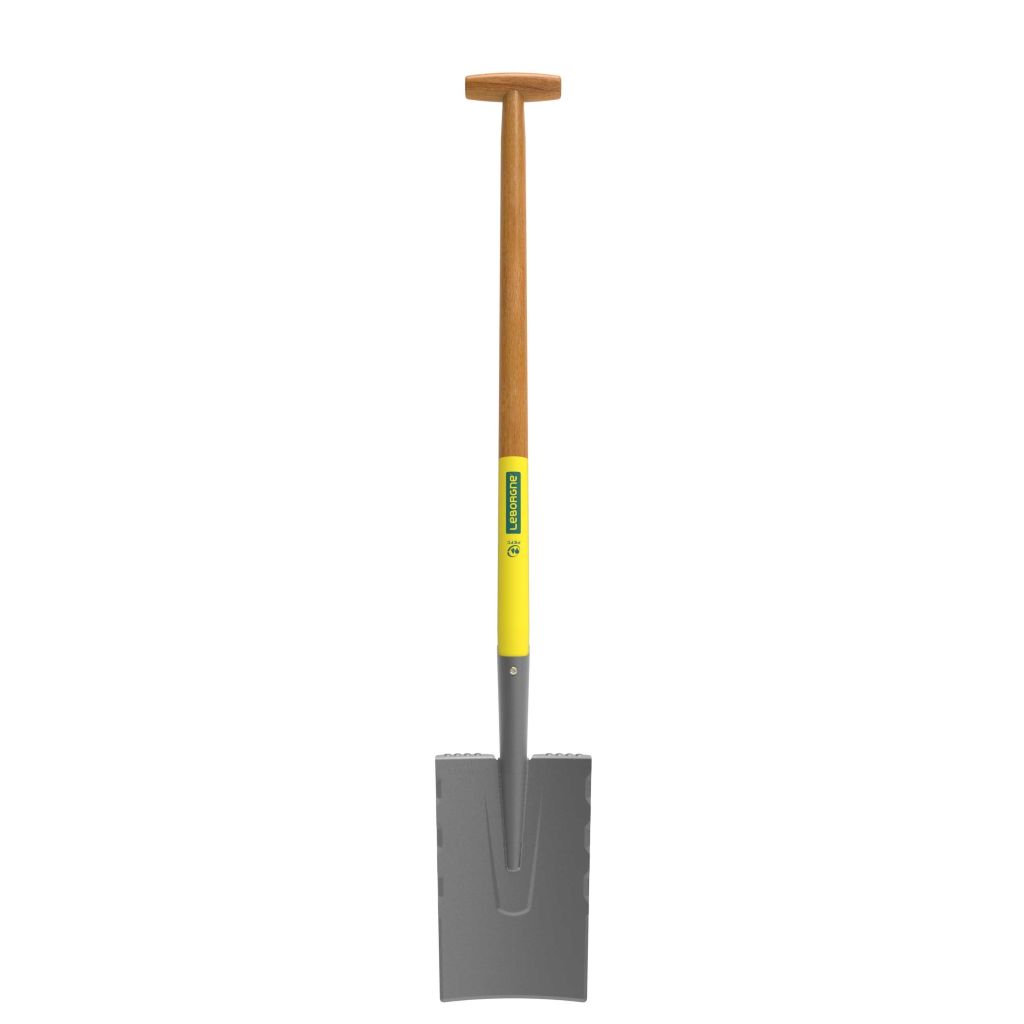

Senlis Duopro Spade with wooden handle and Leborgne crutch
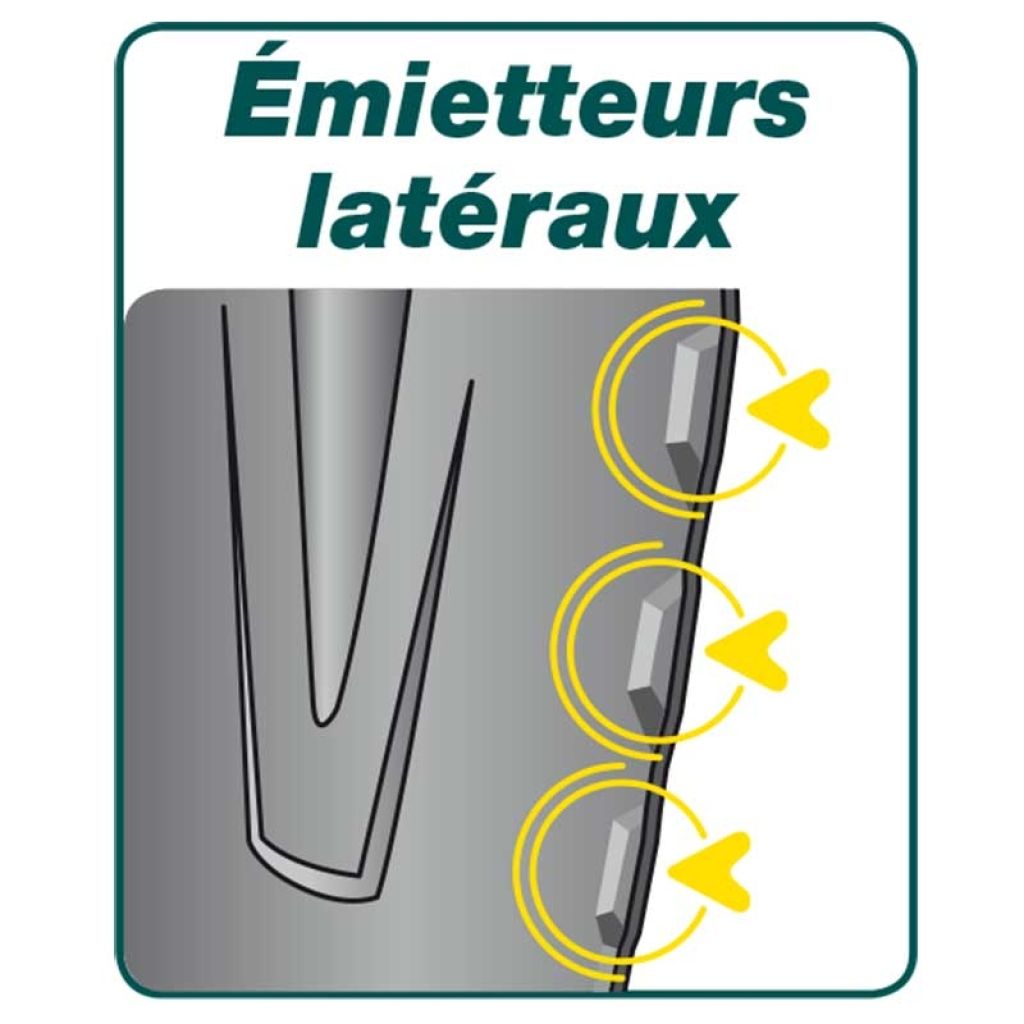

Senlis Duopro Spade with wooden handle and Leborgne crutch
Senlis Duopro Spade with wooden handle and Leborgne crutch
Special offer!
Receive a €20 voucher for any order over €90 (excluding delivery costs, credit notes, and plastic-free options)!
1- Add your favorite plants to your cart.
2- Once you have reached €90, confirm your order (you can even choose the delivery date!).
3- As soon as your order is shipped, you will receive an email containing your voucher code, valid for 3 months (90 days).
Your voucher is unique and can only be used once, for any order with a minimum value of €20, excluding delivery costs.
Can be combined with other current offers, non-divisible and non-refundable.
Home or relay delivery (depending on size and destination)
Schedule delivery date,
and select date in basket
We guarantee the quality of our plants for a full growing cycle, and will replace at our expense any plant that fails to recover under normal climatic and planting conditions.

The Senlis Duopro shovel with wooden handle and Leborgne crutch stands out for its long wooden crutch handle, which provides lightness and allows for easy handling of the tool, even when loaded. Exceptionally strong, the tool features a tempered steel head with reinforcing veins, mounted on a high, fully welded socket sleeve that is fixed with screws and reinforced with a rear reinforcing collar. Its narrow blade is specially equipped with sharpened lateral and frontal cutting edges for better soil penetration, non-slip footrests, and lateral crumblers, useful for breaking up clumps of soil. It is a perfect tool for soil preparation, transplanting, and earthworks in fine soils, even heavy and sticky ones. Its robustness and precision make it an ideal tool for digging trenches. Also available in other versions with different handles. Manufacturer's 15-year guarantee.
Dimensions of the spade blade: 28cm (11in) x 20cm (8in)
Blade thickness: 2.4mm
Weight: 1.9kg
The spade is a garden tool designed for intensive work in rocky and heavy soils. It is a narrow and long-bladed spade used for deep soil preparation, requiring precision and strength, such as in the case of clayey soils. It is also used by nurserymen to uproot trees or shrubs with a substantial root system. Its polished blade on both sides easily penetrates these types of soil, while its high socket sleeve provides resistance to tipping and lifting heavy weights, while protecting the handle from rot and dirt. Use it to turn the soil deeply, bury fertilizers and amendments such as manure, and for transplanting. It is also used for earthworks, especially for digging trenches for drainage pipes or creating a hedge. This model is equipped with sharp-edged blades and non-slip footrests, allowing for better soil penetration. Lateral crumblers are invaluable for breaking up clumps more effectively. Its long crutch handle ensures better control of the carried loads and the tool's orientation. Made of wood, it is also light to handle. Its high-quality design guarantees exceptional resistance to effort and wear! Indeed, the entire tool is fully hardened steel and equipped with reinforcing veins that better withstand the pressures exerted during deep digging. It will accompany the gardener for many years. This tool is guaranteed for 15 years by the manufacturer.
The Leborgne company is a French company born out of metallurgical activity in Savoie in 1829. Today, it is a specialist in the manufacture of high-quality hand tools, used in construction, masonry, landscaping, and gardening, among other fields. Their products combine robustness and ergonomics while meeting the most specific needs!
This tool is under warranty. The warranty does not apply to handles or grips, only to metal parts, except consumables (screws, springs, etc.), and within the scope of normal use.
Technical features
Tips
Other Spades, shovels, and forks
View all →This item has not been reviewed yet - be the first to leave a review about it.
Similar products
Haven't found what you were looking for?
Hardiness is the lowest winter temperature a plant can endure without suffering serious damage or even dying. However, hardiness is affected by location (a sheltered area, such as a patio), protection (winter cover) and soil type (hardiness is improved by well-drained soil).

Photo Sharing Terms & Conditions
In order to encourage gardeners to interact and share their experiences, Promesse de fleurs offers various media enabling content to be uploaded onto its Site - in particular via the ‘Photo sharing’ module.
The User agrees to refrain from:
- Posting any content that is illegal, prejudicial, insulting, racist, inciteful to hatred, revisionist, contrary to public decency, that infringes on privacy or on the privacy rights of third parties, in particular the publicity rights of persons and goods, intellectual property rights, or the right to privacy.
- Submitting content on behalf of a third party;
- Impersonate the identity of a third party and/or publish any personal information about a third party;
In general, the User undertakes to refrain from any unethical behaviour.
All Content (in particular text, comments, files, images, photos, videos, creative works, etc.), which may be subject to property or intellectual property rights, image or other private rights, shall remain the property of the User, subject to the limited rights granted by the terms of the licence granted by Promesse de fleurs as stated below. Users are at liberty to publish or not to publish such Content on the Site, notably via the ‘Photo Sharing’ facility, and accept that this Content shall be made public and freely accessible, notably on the Internet.
Users further acknowledge, undertake to have ,and guarantee that they hold all necessary rights and permissions to publish such material on the Site, in particular with regard to the legislation in force pertaining to any privacy, property, intellectual property, image, or contractual rights, or rights of any other nature. By publishing such Content on the Site, Users acknowledge accepting full liability as publishers of the Content within the meaning of the law, and grant Promesse de fleurs, free of charge, an inclusive, worldwide licence for the said Content for the entire duration of its publication, including all reproduction, representation, up/downloading, displaying, performing, transmission, and storage rights.
Users also grant permission for their name to be linked to the Content and accept that this link may not always be made available.
By engaging in posting material, Users consent to their Content becoming automatically accessible on the Internet, in particular on other sites and/or blogs and/or web pages of the Promesse de fleurs site, including in particular social pages and the Promesse de fleurs catalogue.
Users may secure the removal of entrusted content free of charge by issuing a simple request via our contact form.
The flowering period indicated on our website applies to countries and regions located in USDA zone 8 (France, the United Kingdom, Ireland, the Netherlands, etc.)
It will vary according to where you live:
- In zones 9 to 10 (Italy, Spain, Greece, etc.), flowering will occur about 2 to 4 weeks earlier.
- In zones 6 to 7 (Germany, Poland, Slovenia, and lower mountainous regions), flowering will be delayed by 2 to 3 weeks.
- In zone 5 (Central Europe, Scandinavia), blooming will be delayed by 3 to 5 weeks.
In temperate climates, pruning of spring-flowering shrubs (forsythia, spireas, etc.) should be done just after flowering.
Pruning of summer-flowering shrubs (Indian Lilac, Perovskia, etc.) can be done in winter or spring.
In cold regions as well as with frost-sensitive plants, avoid pruning too early when severe frosts may still occur.
The planting period indicated on our website applies to countries and regions located in USDA zone 8 (France, United Kingdom, Ireland, Netherlands).
It will vary according to where you live:
- In Mediterranean zones (Marseille, Madrid, Milan, etc.), autumn and winter are the best planting periods.
- In continental zones (Strasbourg, Munich, Vienna, etc.), delay planting by 2 to 3 weeks in spring and bring it forward by 2 to 4 weeks in autumn.
- In mountainous regions (the Alps, Pyrenees, Carpathians, etc.), it is best to plant in late spring (May-June) or late summer (August-September).
The harvesting period indicated on our website applies to countries and regions in USDA zone 8 (France, England, Ireland, the Netherlands).
In colder areas (Scandinavia, Poland, Austria...) fruit and vegetable harvests are likely to be delayed by 3-4 weeks.
In warmer areas (Italy, Spain, Greece, etc.), harvesting will probably take place earlier, depending on weather conditions.
The sowing periods indicated on our website apply to countries and regions within USDA Zone 8 (France, UK, Ireland, Netherlands).
In colder areas (Scandinavia, Poland, Austria...), delay any outdoor sowing by 3-4 weeks, or sow under glass.
In warmer climes (Italy, Spain, Greece, etc.), bring outdoor sowing forward by a few weeks.






























